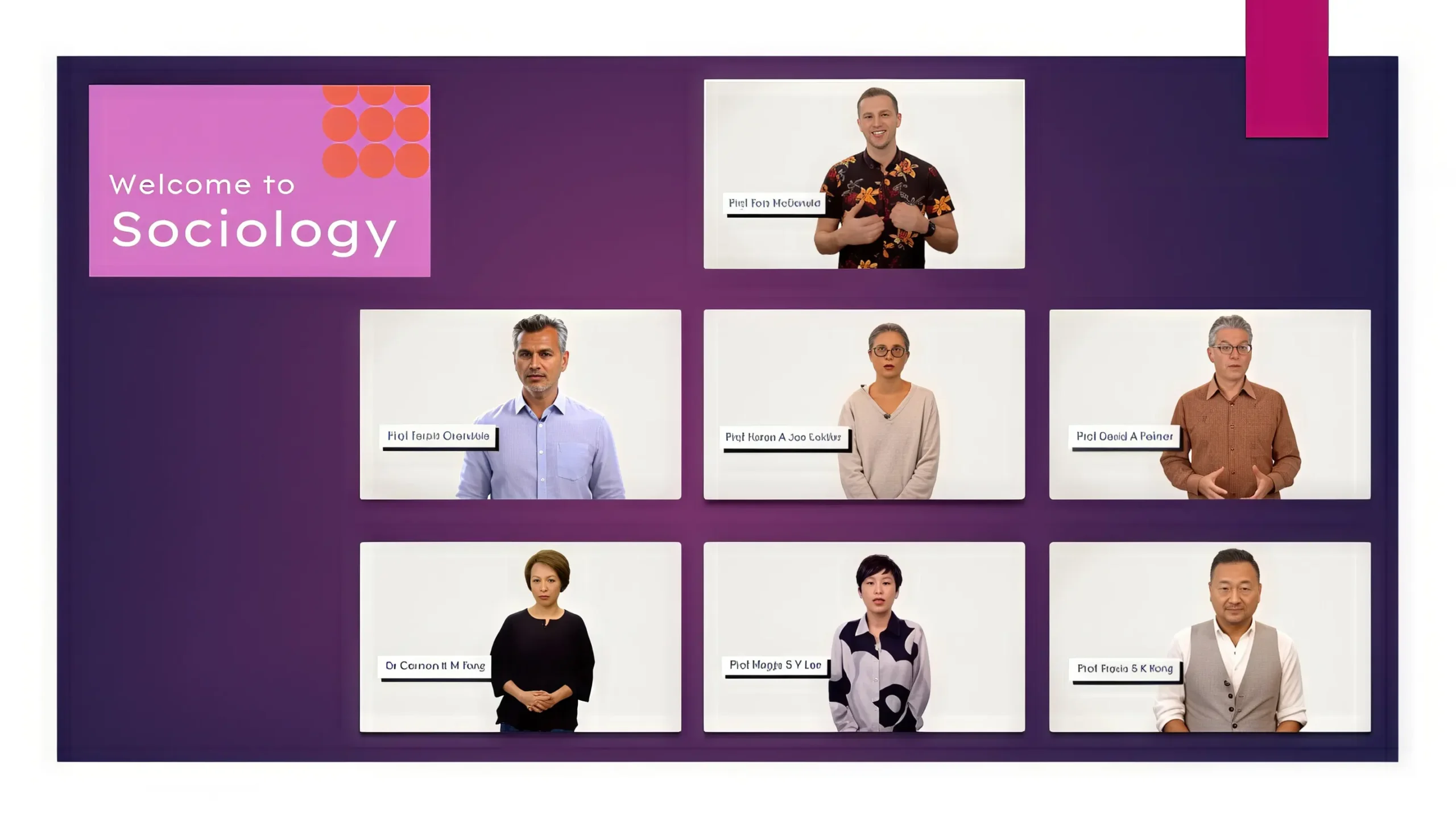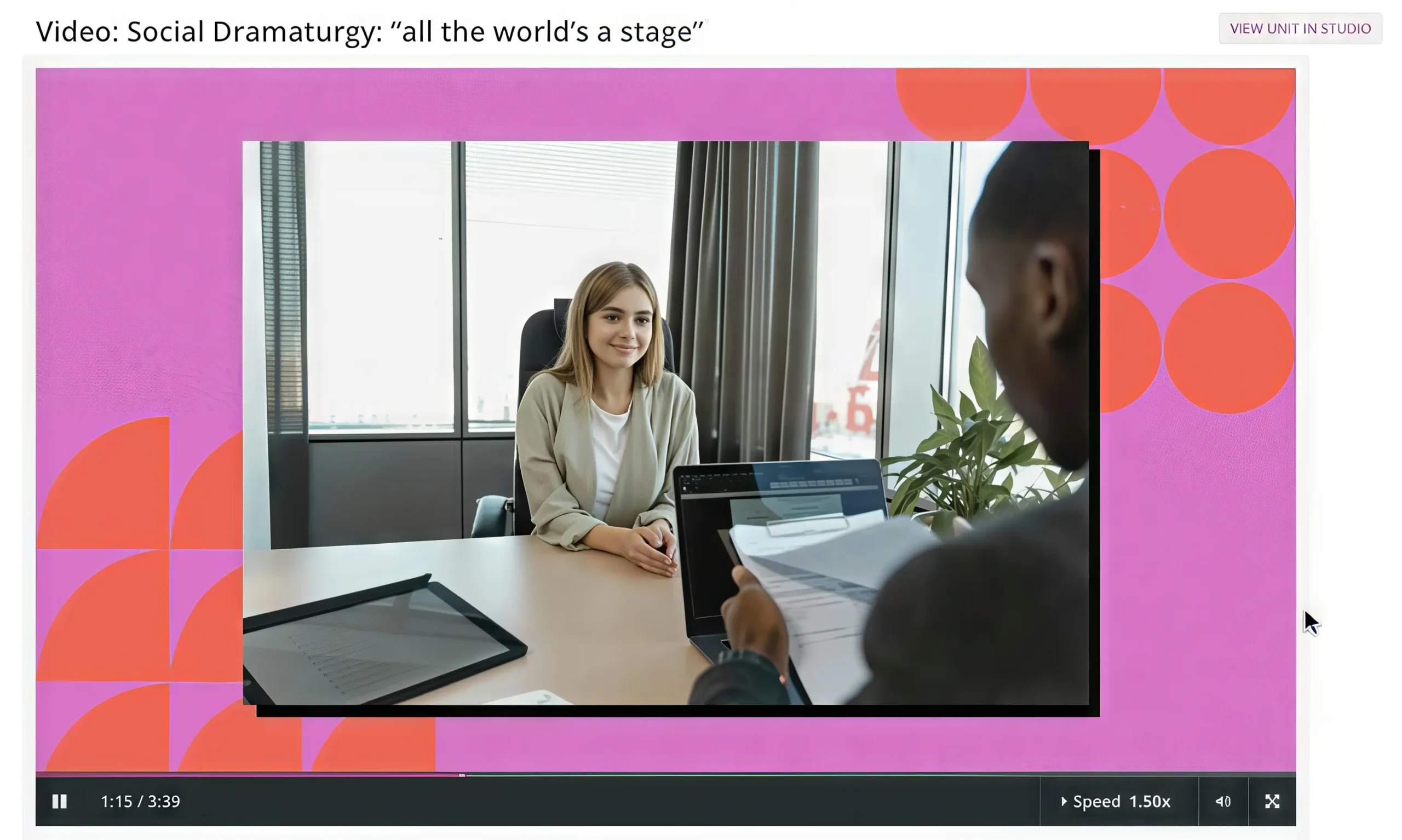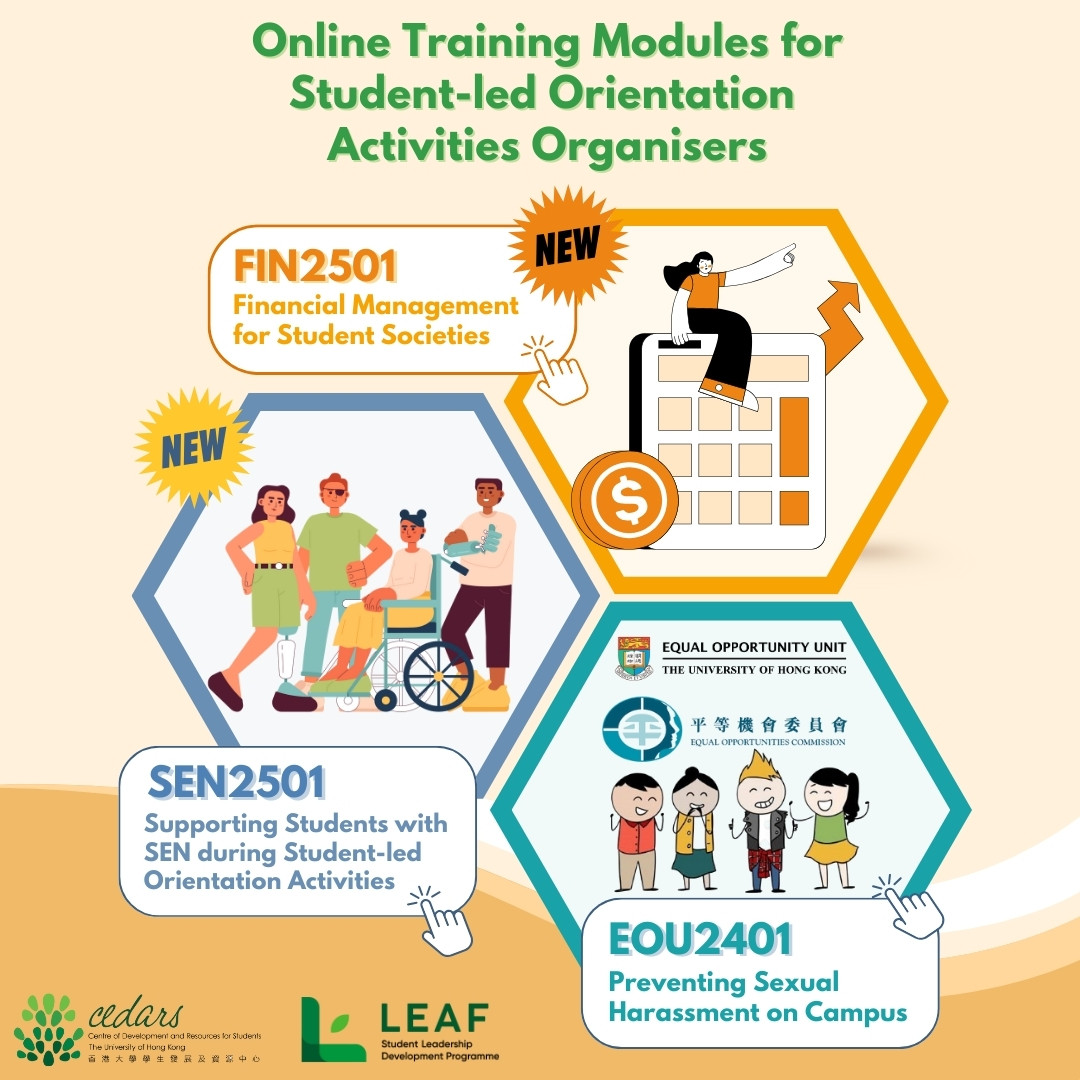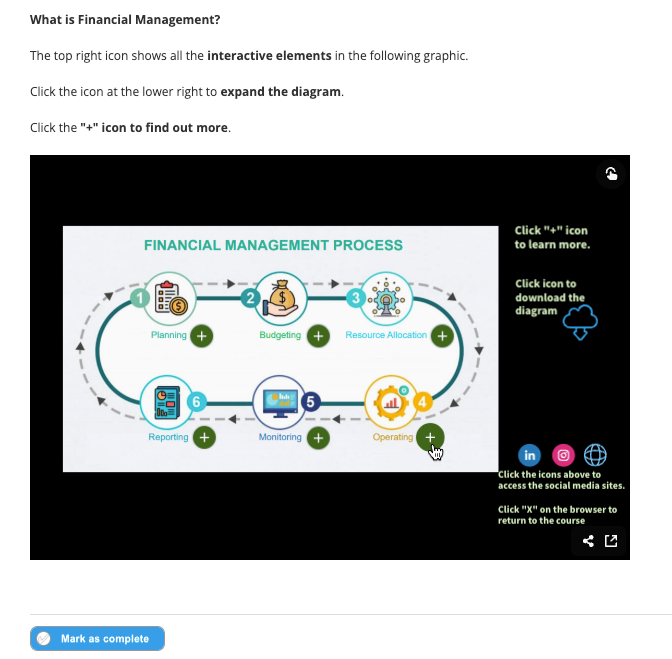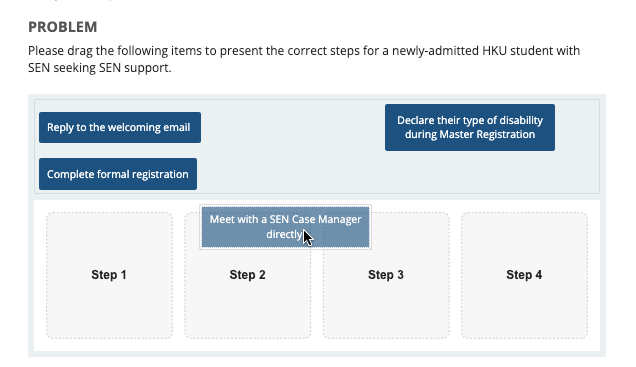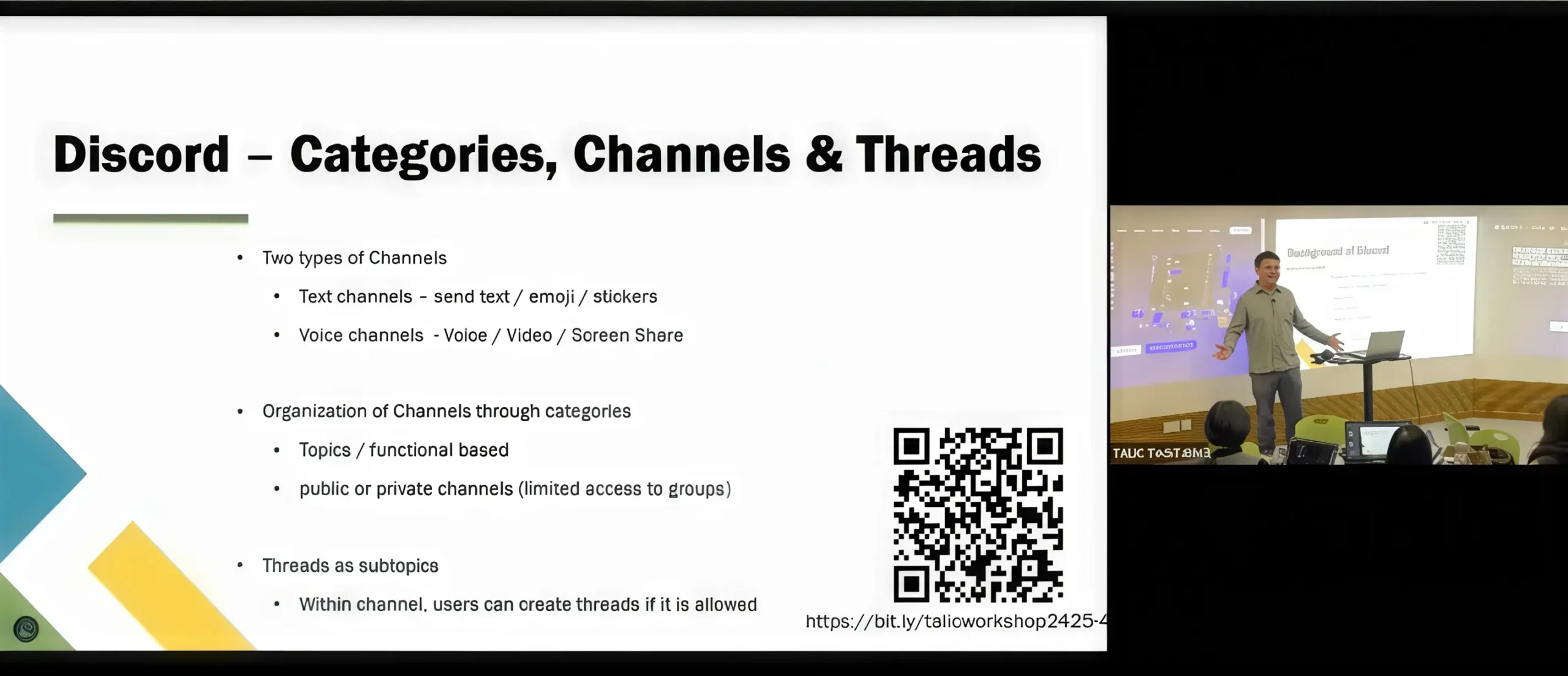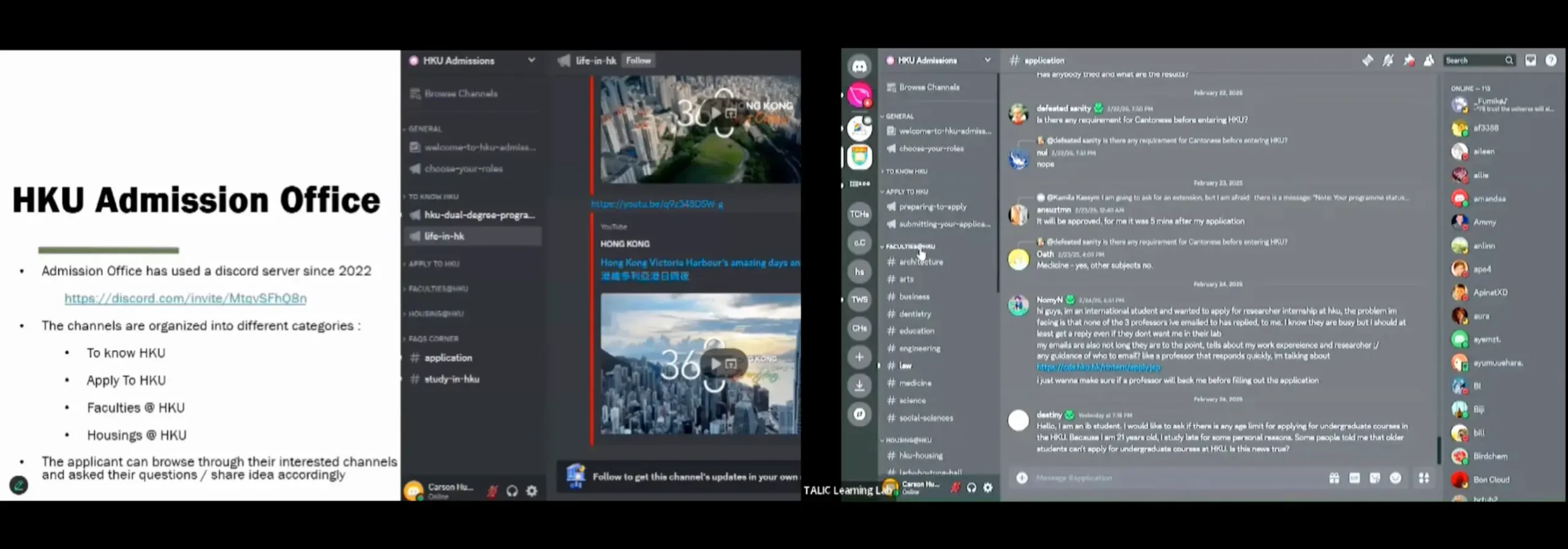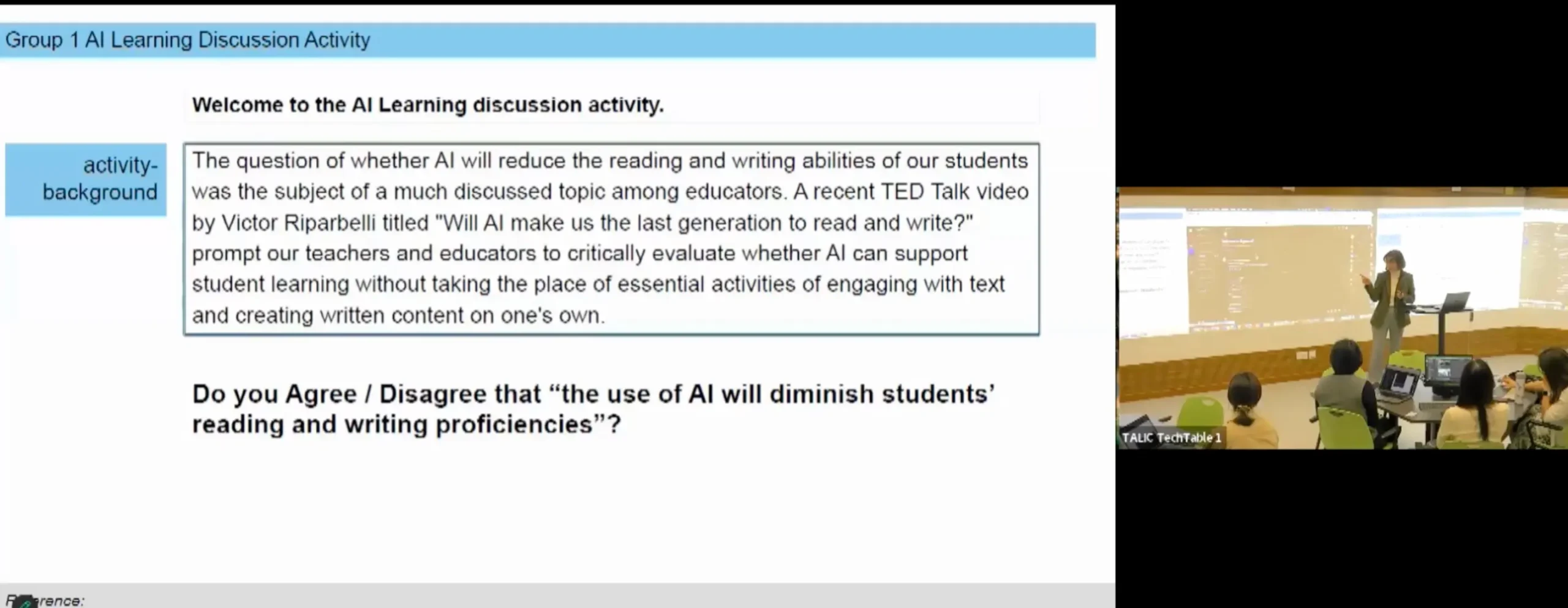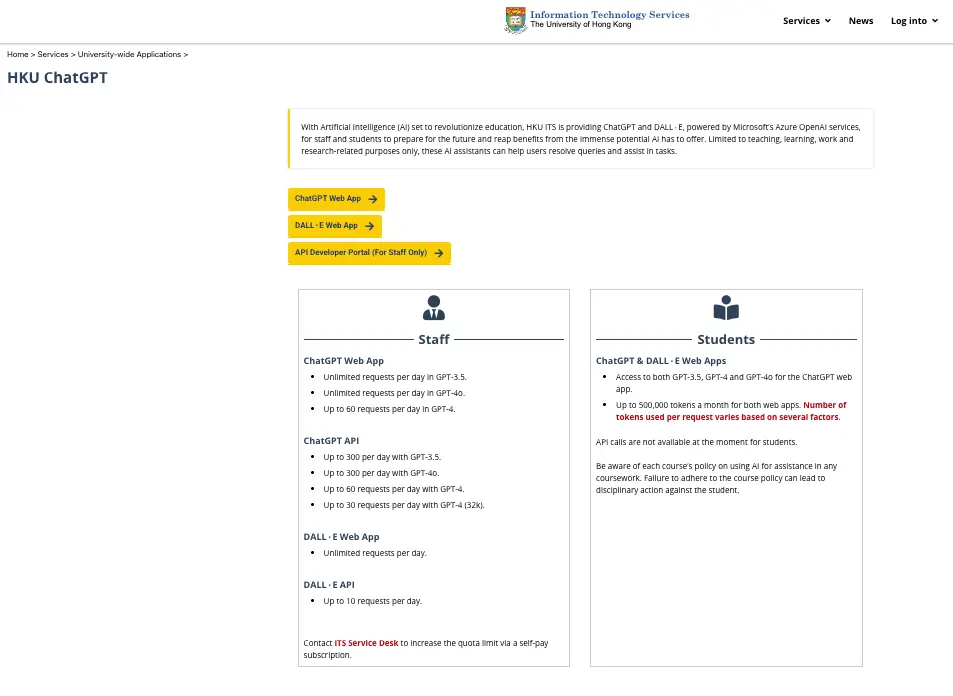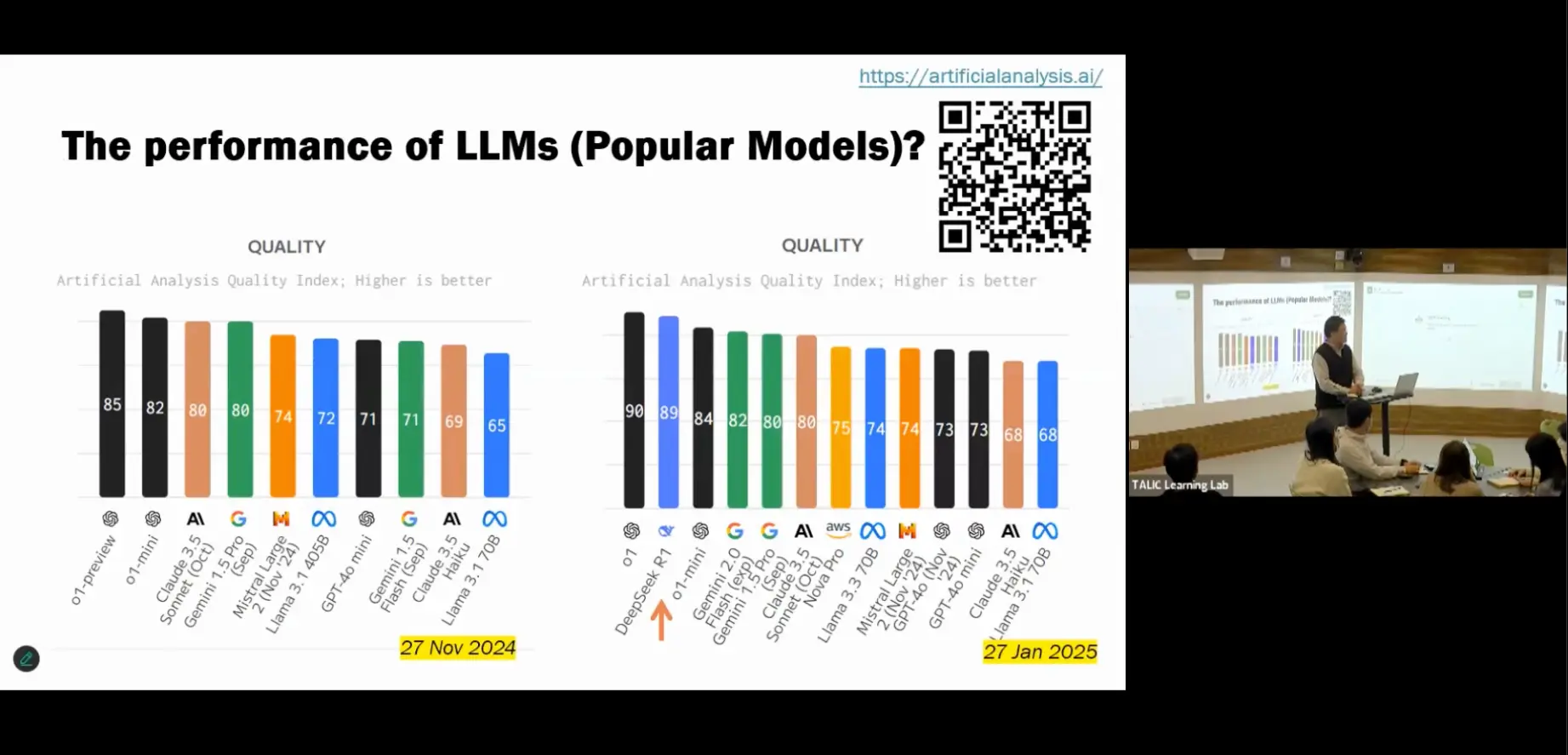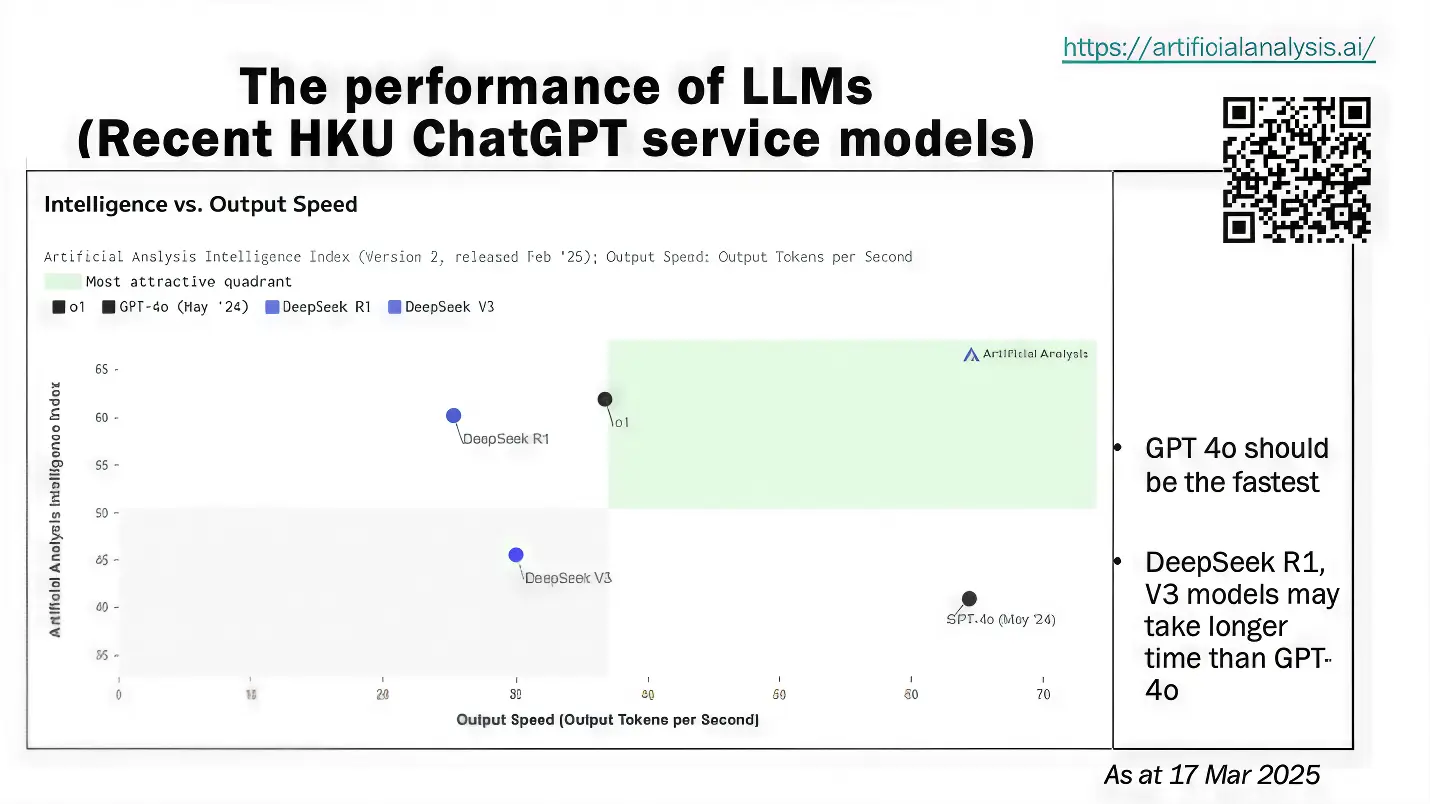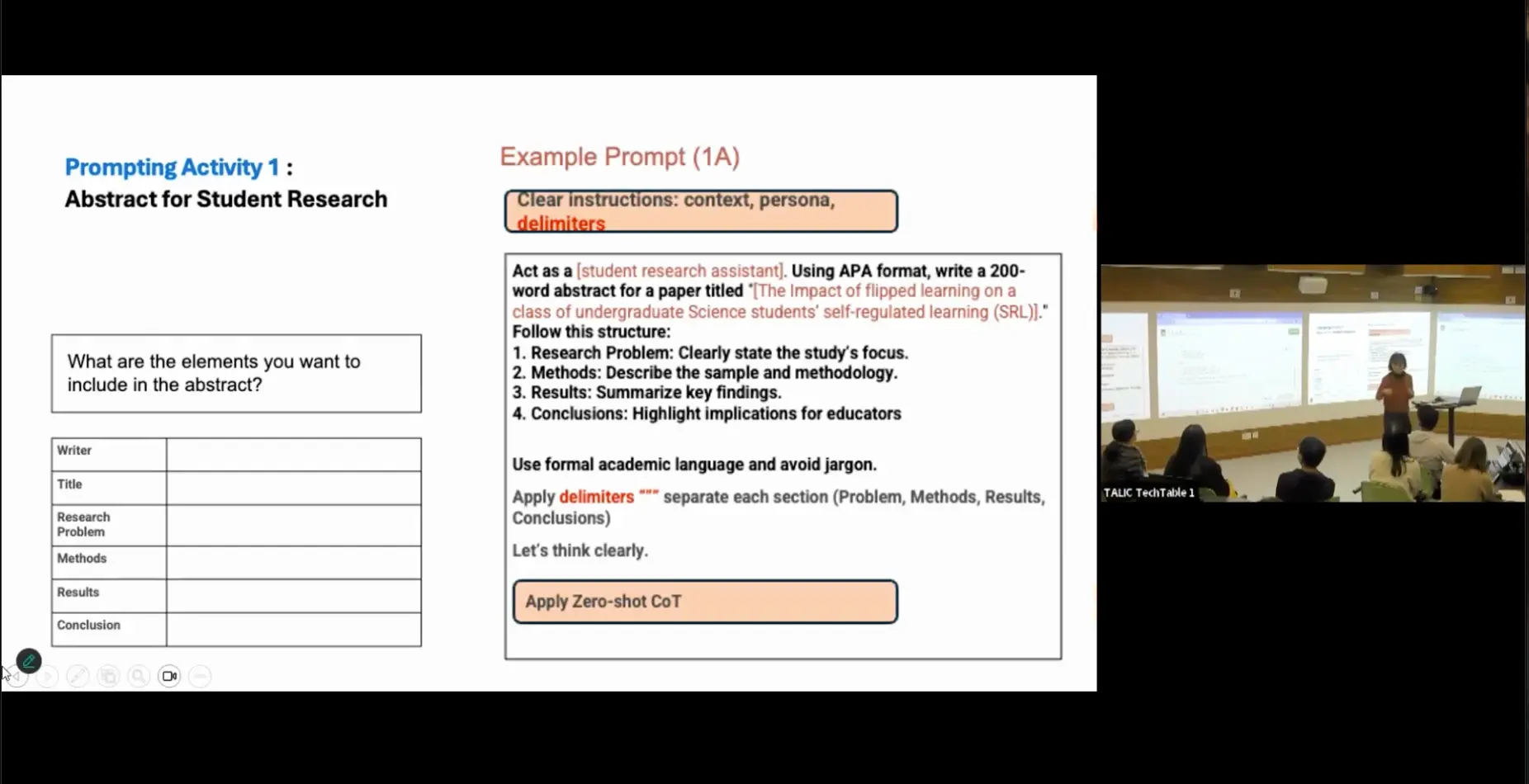Interactive learning on a VR platform to familiarize new students with CAES resources
CAES1001, a first-year Academic English course, is working with the University of HongKong Libraries (HKUL) and the Teaching and Learning Innovation Centre (TALIC) to launch a virtual reality (VR) self-learning platform. This innovative project aims to enhance learning for first-year undergraduates by offering engaging and interactive experiences. Through the platform, students can develop essential skills such as writing, speaking, digital, visual, and AI literacy, with resources tailored to HKU’s diverse student community.
Touring six iconic landmarks to foster six key literacies
The VR platform guides students through six iconic HKU landmarks, each featuring a vital literacy area. At the CAES Office, students explore CAES1001 as a toolkit for developing academic literacy, including needs analysis activities to identify personal learning goals. In the Classroom, they discover AI-powered visual content tools and visit the VR Lab, developed with CLEP, to rehearse presentations and receive instant feedback. The Chi Wah Learning Commons emphasizes responsible AI use through reflective activities on ethical applications. The Examination Hall supports writing literacy with guidance on academic writing and citations. HKU Libraries (HKUL) serve as a virtual resource hub, helping students navigate library facilities and upcoming workshops. Finally, University Street connects core academic skills with interdisciplinary learning, encouraging students to reflect on and integrate their literacies across contexts.
1. CAES Office
Students are introduced to CAES1001 as a toolkit for developing academic literacy. Through a needs analysis activity, students identify their learning needs and choose resources for personal development.2. Classroom
In this area, students learn about AI-powered tools for visual content creation and features a VR Lab developed with the Chinese Language Enhancement Programme (CLEP). Students can visit the lab to rehearse presentations and receive instant feedback.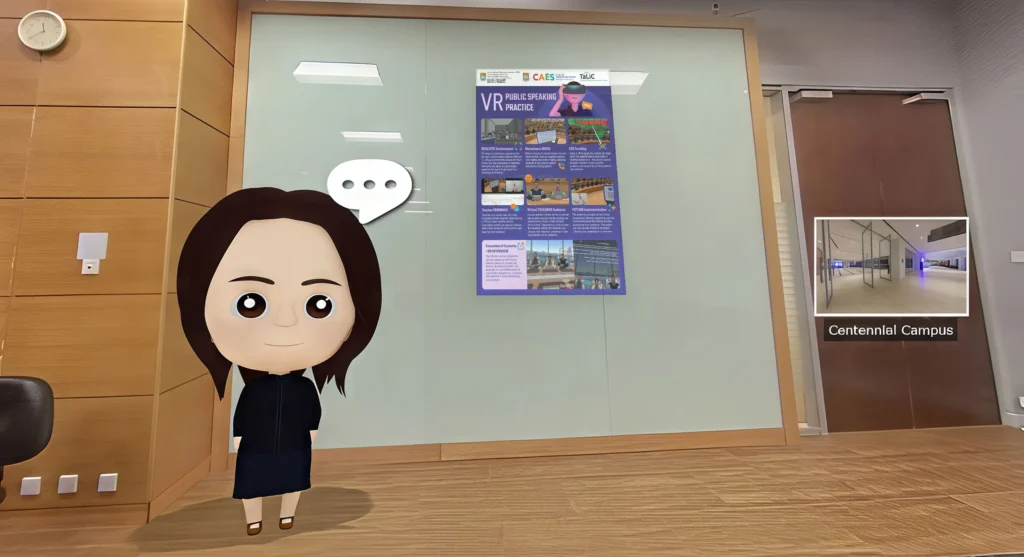
3. Chi Wah Learning Common
This area engages students in reflective activities to explore responsible AI application in academic settings, examining real-life scenarios that show both benefits and challenges.4. Examination Hall
This virtual space supports writing literacy by providing guidance on academic writing and effective citation management.5. Hong Kong University Libraries (HKUL)
The virtual HKUL helps students navigate library resources and informs them about upcoming training workshops.6. University Street
This landmark bridges core academic skills and Common Core Courses. Students reflect on their learning, connecting foundational literacies to broader interdisciplinary contexts.Empowering student success with engaging VR resources
The CAES1001 VR platform is an engaging learning environment featuring interactive quizzes, reflective activities, and impactful learning videos. It seamlessly integrates comprehensive resources from CAES, HKUL and TALIC, giving students access to the latest materials and support. This platform exemplifies HKU’s commitment to preparing students for academic excellence in a rapidly changing world. By merging digital innovation with foundational literacy, this collaborative initiative ushers in a new era in higher education, empowering first-year students to thrive from the start.
Dr. Alice YAU
Programme Coordinator of
CAES1001 Academic Communication in English (ACE)
Centre for Applied English Studies (CAES)















